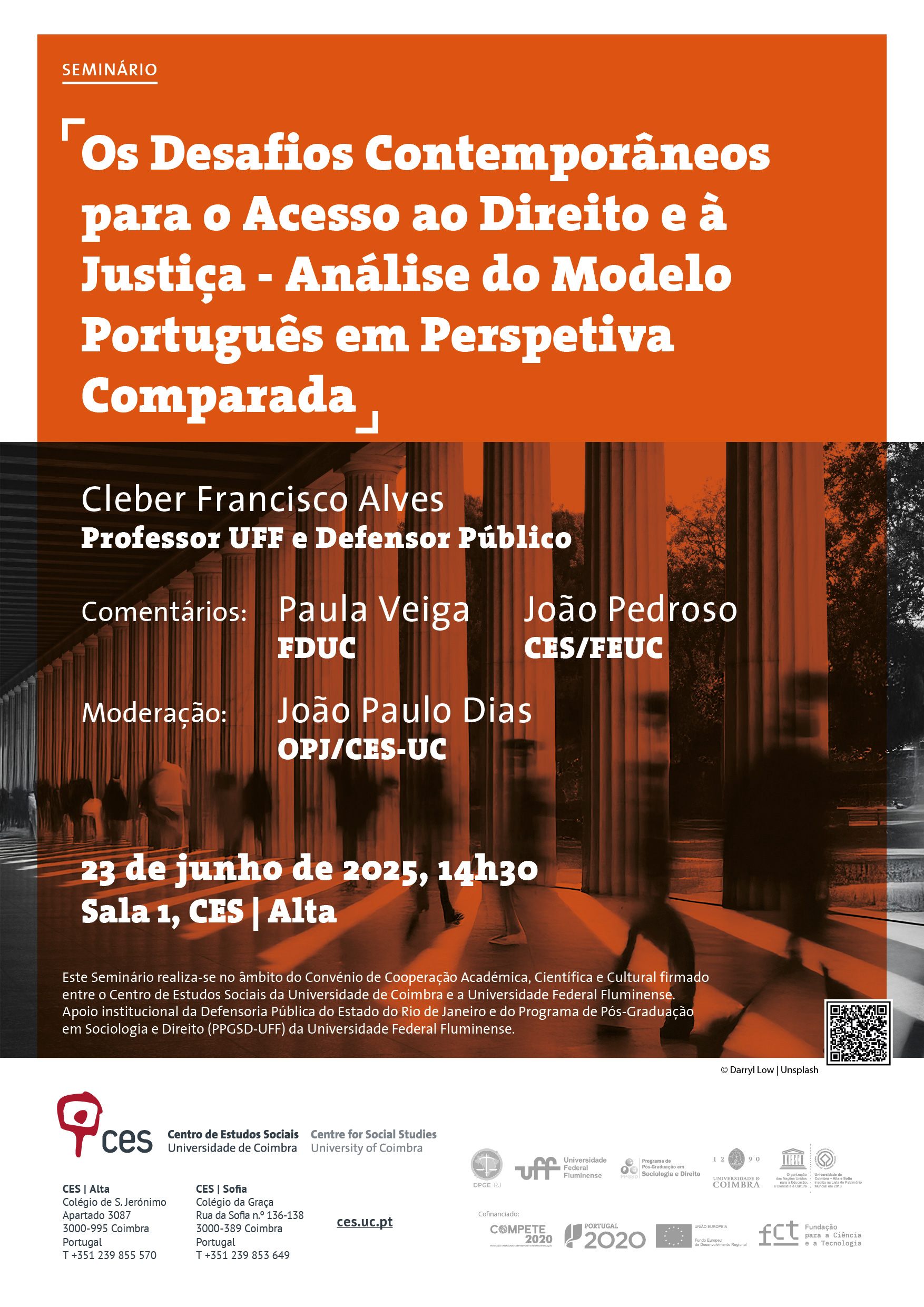Seminar
Contemporary Challenges for Access to Law and Justice - Analysing the Portuguese Model from a Comparative Perspective
June 23, 2025, 14h30
Room 1, CES | Alta
The attainment of the human aspiration for justice in interpersonal and social relations has been a great challenge for peoples and nations throughout history. In this sense, the inequalities between different individuals, especially those of a social and economic nature, often constitute serious barriers and obstacles to the effective realisation of justice and the enjoyment of the rights provided for in the legal system. In order to overcome these obstacles, since the middle of the last century, the world has seen the structuring of various models through which national states have sought to achieve this goal, overcoming anachronistic charitable regimes in which services were provided on a pro bono basis.
In this new context, the contemporary models adopted have basically been classified into three categories: the judicare model, the staff model and mixed models. The model adopted in Portugal stems from the 1976 Constitutional Charter (Art. 20), and, indeed, the charitable model was only effectively overcome in 1988, when the state began to guarantee remuneration for legal professionals. Since then, the country has had a system that is part of the model known as judicare, designed to provide the underprivileged with the right to legal protection in the broadest sense, which includes legal aid and the right to legal advice/information and any extrajudicial steps and even alternative dispute resolution mechanisms.
The purpose of this seminar is to promote a critical debate on the fundamental characteristics and the actual operating dynamics of the Portuguese model of access to law and justice from a comparative perspective with other models, specifically with the Brazilian model, which adopts a staff model, through the Public Defender's Office. It also intends to propose ideas for improving both models based on empirical verifications of the reality of how these systems work.
This seminar is aimed at various professions, particularly in the areas of justice, public organisations and civil society associations, academia and research, activists and anyone interested in reflecting on and better understanding the functioning of the system of access to rights and justice in Portugal, from a comparative perspective with the Brazilian system.
Programme
Introduction and Moderation: João Paulo Dias – OPJ/CES/UC
Speaker: Cleber Francisco Alves – Visiting Researcher at CES/UC, Professor (UFF) and Public Defender
Commentary:
Paula Veiga – Professor and Subdirector at FDUC
João Pedroso – Researcher and Professor at CES/FEUC
This seminar is being held under the Academic, Scientific and Cultural Cooperation Agreement signed between the Centre for Social Studies of the University of Coimbra and the Fluminense Federal University, and is linked to the research project being carried out by Cleber Francisco Alves at CES, with institutional support from the Public Defender's Office of the State of Rio de Janeiro and the Postgraduate Programme in Sociology and Law (PPGSD-UFF) of the Fluminense Federal University.
This activity is part of the CES Research Group on Democracy, Justice and Human Rights.


